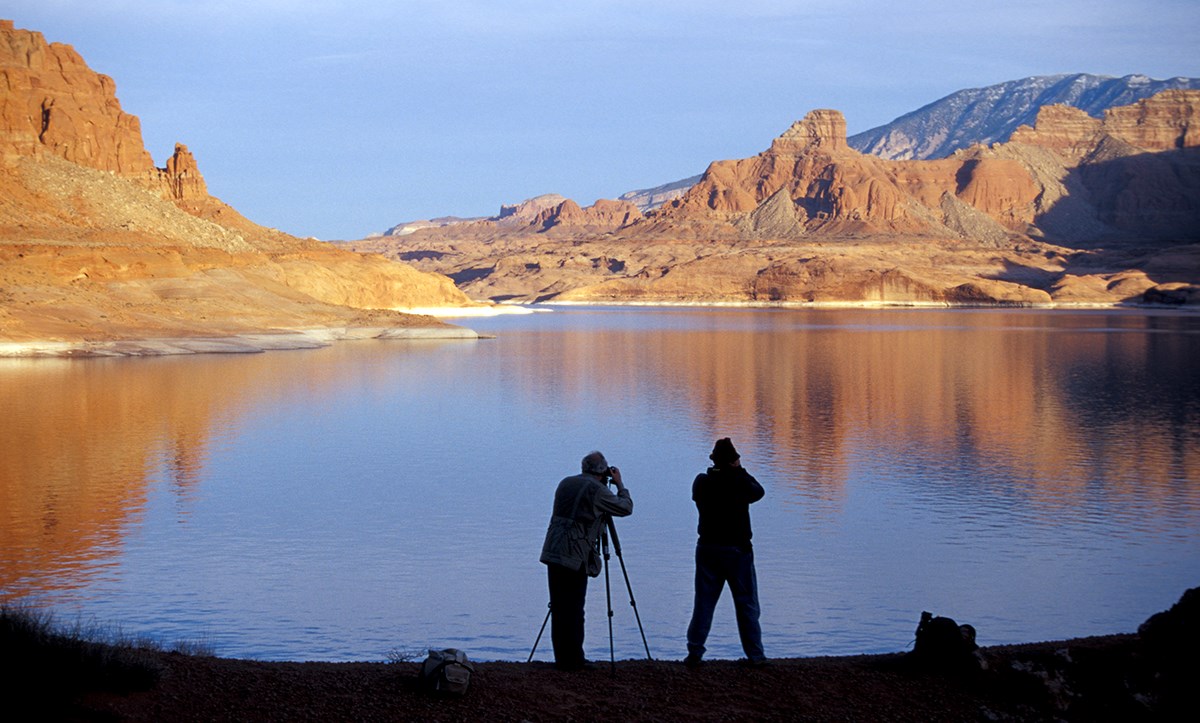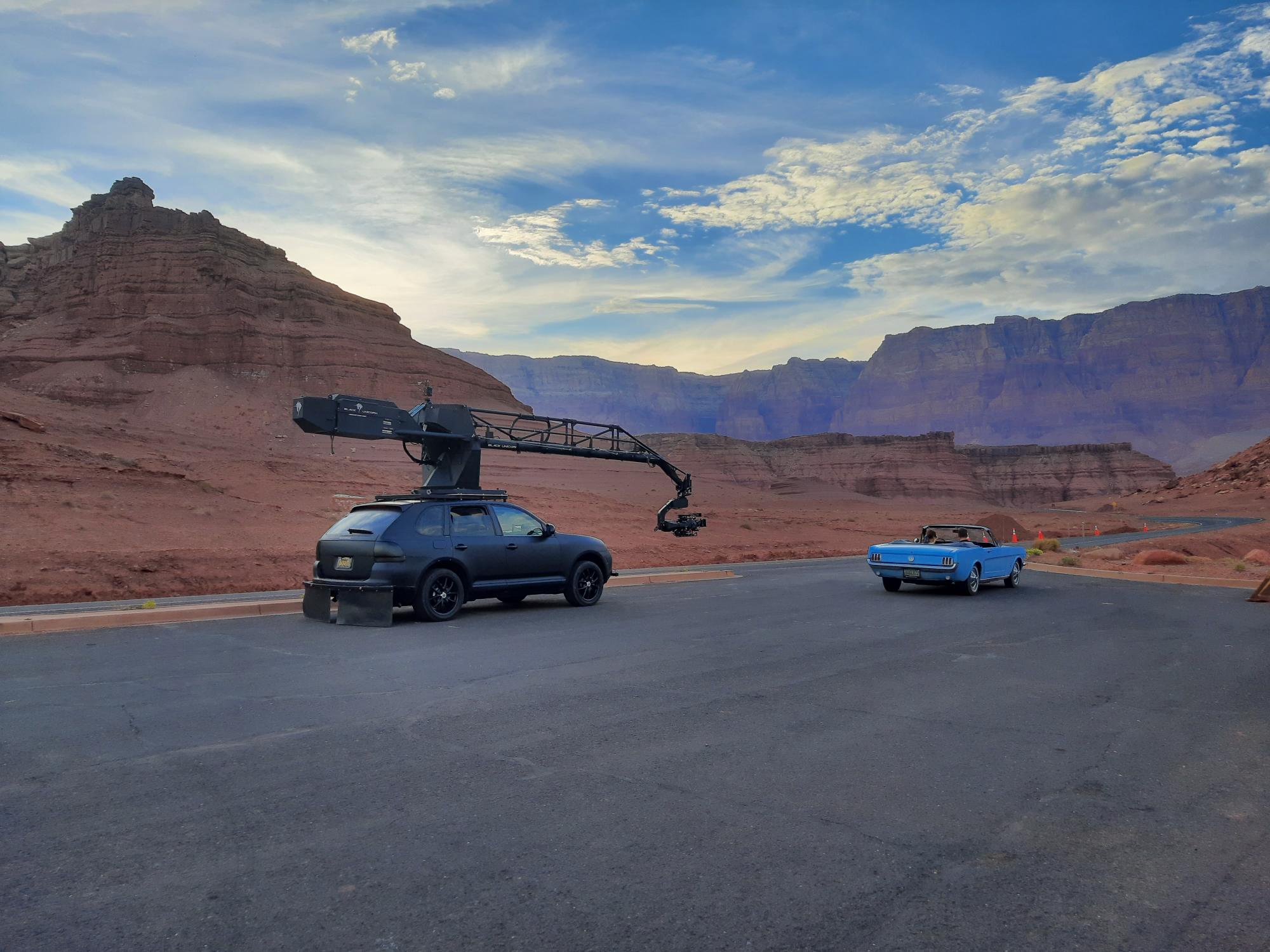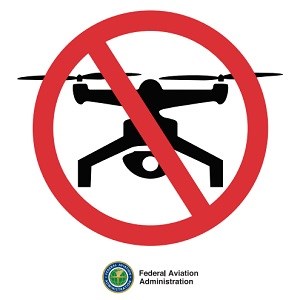
Gary Ladd How to ApplyAll permit applications will be reviewed on a case by case basis. Due to the current dynamic situation, permits will take longer than usual to process.The Special Use Permit (SUP) program authorizes activities that provide benefit to an individual, group or organization, rather than the public at large; and that require written authorization and some degree of management control in order to protect park resources and the public interest. Examples include fishing tournaments, weddings and other large group gatherings, 1st Amendment activities, and rights-of-way/easements. 
Commercial FilmingChanges to Commercial Filming Permits on Park LandOn August 23, 2022, the United States Court of Appeals for the District of Columbia issued a decision reversing the order of the District Court. Price v. Garland 45 f.4th 1059 (D.C. Cir 2022). This decision became effective October 28, 2022, with the issuance of the Court of Appeals Mandate. As a result, the statute and regulations that governed commercial filming before the Price decision are again in effect. A special use permit is required for all commercial filming activities and certain still photography activities.Those interested in commercial filming activities on land managed by the National Park Service are encouraged to contact the park directly for more information about filming in the park and to discuss how to minimize potential impacts to visitors and sensitive park resources. Does commercial filming by individuals or small groups require a permit?Federal law requires a permit for all commercial filming, no matter the size of the crew or the type of equipment. This includes individuals or small groups that don’t use much equipment, but generate revenue by posting footage on websites, such as YouTube and TikTok. The primary focus of the NPS, however, is on commercial filming that has the potential to impact park resources and visitors beyond what occurs from normal visitor use of park areas. Examples of this type of filming are productions that use substantial equipment such as sets and lighting, productions with crews that exceed 5 people, and filming in closed areas, wilderness areas, or in locations that would create conflicts with other visitors or harm sensitive resources. What is considered commercial filming?"Commercial filming" means the film, electronic, magnetic, digital, or other recording of a moving image by a person, business, or other entity for a market audience with the intent of generating income. Examples include, but are not limited to, feature film, videography, and documentaries. Commercial filming may include the advertisement of a product or service, or the use of actors, models, sets, or props. Does non-commercial filming require a permit?Individual parks may require a permit for non-commercial filming if necessary to manage the activity, to protect park resources and values, minimize conflict between user groups, or to ensure public safety. Examples of non-commercial filming include, but are not limited to, filming for tourism bureaus, convention and visitor bureaus, student filming, and filming for personal use and enjoyment. If you have questions about whether a non-commercial film project requires a permit, please contact the park where you intend to film in advance. What fees will I have to pay for a permit?Glen Canyon National Recreation Area will collect a cost recovery charge and a location fee for all filming permits. Cost recovery includes an application fee and any additional charges to cover the costs incurred by the National Park Service in processing your request and monitoring your permit. This amount will vary depending on the size and complexity of your permit. The application fee must be submitted with your application.In addition, the National Park Service has been directed by Congress to collect a fee to provide a fair return to the United States for the use of park lands. The National Park Service uses the following location fee schedule:
Permits issued for non-commercial filming may be subject to cost recovery charges, including an application fee, but a separate location fee will not be charged. Filming in Wilderness AreasThe National Park Service manages and protects more than 67 million acres of park lands and waters as wilderness areas. These areas have additional laws and policies to preserve their wilderness character for future generations. Filming activities in wilderness areas must follow all applicable laws and regulations that govern wilderness areas in the park, including prohibitions on structures, installations, motor vehicles, mechanical transport, motorized equipment, motorboats, or landing of aircrafts. Except for casual filming by visitors, special use permits for filming are required for all filming activities in wilderness areas, no matter the group size or equipment used. Still PhotographyStill photographers require a permit only when:
What fees will I have to pay for a permit?Glen Canyon National Recreation Area will collect a cost recovery charge and a location fee for all still photography permits. Cost recovery includes an application fee and any additional charges to cover the costs incurred by the National Park Service in processing your request and monitoring your permit. This amount will vary depending on the size and complexity of your permit. The application fee must be submitted with your application.In addition, the National Park Service has been directed by Congress to collect a fee to provide a fair return to the United States for the use of park lands. The National Park Service uses the following location fee schedule:

FAA graphic No Drone ZoneLaunching, landing or operating unmanned or remote controlled aircraft in Glen Canyon National Recreation Area and Rainbow Bridge National Monument is prohibited unless authorized in an official capacity. Authorization would require a Special Use Permit. Unmanned Aircraft defined: The term "unmanned aircraft" means a device that is used or intended to be used for flight in the air without the possibility of direct human intervention from within or on the device, and the associated operational elements and components that are required for the pilot or system operator in command to operate or control the device (such as cameras, sensors, communication links). This term includes all types of devices that meet this definition (e.g., model airplanes, quadcopters, drones) that are used for any purpose, including for recreation or commerce. Read more about unmanned aircraft in the national parks. COVID-19 Status UpdatesGlen Canyon National Recreation AreaCOVID-19 Updates |
Last updated: May 2, 2024
